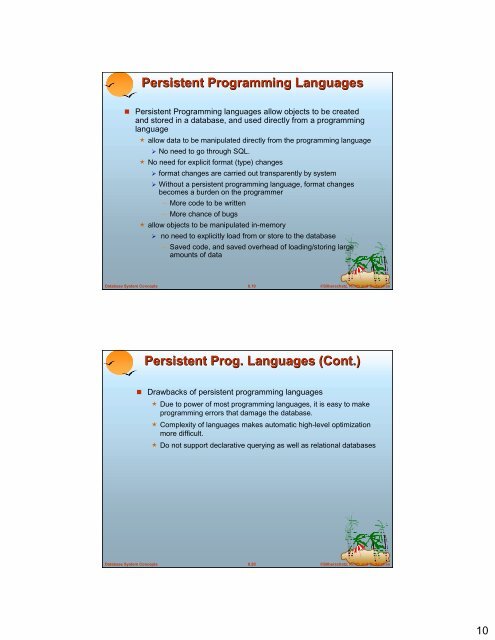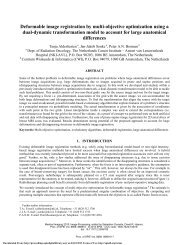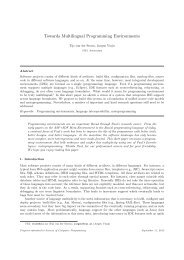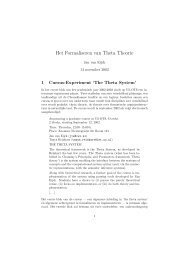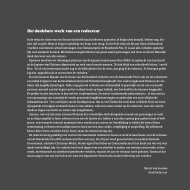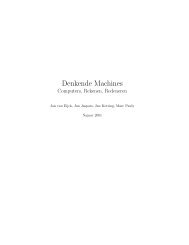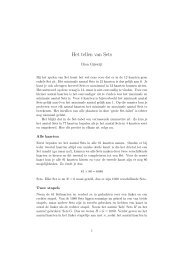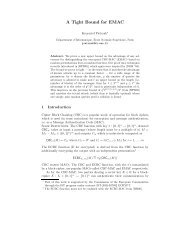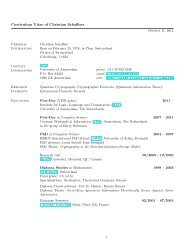Object-Oriented Databases Need for Complex Data Types - CWI
Object-Oriented Databases Need for Complex Data Types - CWI
Object-Oriented Databases Need for Complex Data Types - CWI
You also want an ePaper? Increase the reach of your titles
YUMPU automatically turns print PDFs into web optimized ePapers that Google loves.
<strong>Data</strong>base System Concepts<br />
Persistent Programming Languages<br />
Persistent Programming languages allow objects to be created<br />
and stored in a database, and used directly from a programming<br />
language<br />
allow data to be manipulated directly from the programming language<br />
No need to go through SQL.<br />
No need <strong>for</strong> explicit <strong>for</strong>mat (type) changes<br />
<strong>for</strong>mat changes are carried out transparently by system<br />
Without a persistent programming language, <strong>for</strong>mat changes<br />
becomes a burden on the programmer<br />
– More code to be written<br />
– More chance of bugs<br />
allow objects to be manipulated in-memory<br />
<strong>Data</strong>base System Concepts<br />
no need to explicitly load from or store to the database<br />
– Saved code, and saved overhead of loading/storing large<br />
amounts of data<br />
8.19<br />
8.20<br />
©Silberschatz, Korth and Sudarshan<br />
Persistent Prog. Prog.<br />
Languages (Cont.)<br />
Drawbacks of persistent programming languages<br />
Due to power of most programming languages, it is easy to make<br />
programming errors that damage the database.<br />
<strong>Complex</strong>ity of languages makes automatic high-level optimization<br />
more difficult.<br />
Do not support declarative querying as well as relational databases<br />
©Silberschatz, Korth and Sudarshan<br />
10


